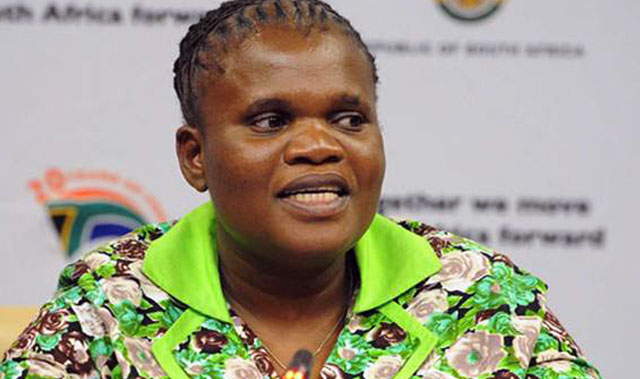 Just as South Africa’s broadcasting digital migration project looked to be making solid progress for the first time in years, one of the protagonists in the long-running war over the encryption of TV signals is unleashing its lawyers, potentially setting the process back by months, even years.
Just as South Africa’s broadcasting digital migration project looked to be making solid progress for the first time in years, one of the protagonists in the long-running war over the encryption of TV signals is unleashing its lawyers, potentially setting the process back by months, even years.
Feeling aggrieved by a reversal in government policy, e.tv said this week that it was challenging communications minister Faith Muthambi’s final policy on digital migration in the high court.
The move comes as the government’s Universal Service & Access Agency of South Africa is gearing up to sign contracts with the successful bidders for the supply of the set-top boxes and aerials that will be provided free to five million poorer households.
The pieces are now mostly in place for commercial digital TV broadcasts to begin. Sentech has built the signal distribution network and the agency, barring any last-minute political meddling in the process, looks set to kick set-top manufacturing into high gear. Although it’s been terrible at communicating its decisions, by most accounts (but not all) the agency has run a fair process.
But it can’t move ahead until there is finality on whether the subsidised boxes will need a conditional access system (necessary to receive encrypted signals). Muthambi’s decision last month that encryption would not be included in government-subsidised set-top boxes — a reversal from government’s previous policy in this regard — is a victory for MultiChoice, which has argued that it would amount to an unfair subsidy to prospective pay-TV broadcasters.
E.tv, on the other hand, warns that signal encryption is crucial to preventing the free-to-air broadcasting sector from becoming “ghettoised”, saying content providers increasingly require it to supply broadcasters with the best content in high definition.
There are other reasons MultiChoice and e.tv advance to support their positions, but this is the essence of their disagreement.
MultiChoice recently pointed out that the set-top box specification developed by the South African Bureau of Standards requires that the boxes include high-bandwidth digital content protection (better known as HDCP), which encrypts the signal sent from the box over an HDMI cable to a TV set. E.tv says the signal itself needs to be encrypted to satisfy the demands of the content industry.
The industry is divided over whether encryption is warranted. So, too, is the ANC. Indeed, it’s widely believed that former communications minister Yunus Carrim was fired — and the communications department split in two — as lobbying and influence peddling reached the highest levels in government.
At stake is the R4bn-plus that the government intends to spend on providing free set-top boxes. But it’s threatening to tear — no, has already torn — the broadcasting and electronics manufacturing sectors apart.
The animosity between MultiChoice and e.tv, serious as it is, resembles something of a playground squabble next to the vicious war that’s broken out between former allies in the emerging black electronics manufacturing industry.
Allegations of criminality, by both sides, have become commonplace. It’s a mess that could even end up causing the broadcasters reputational damage, especially MultiChoice.

MultiChoice is already under fire over a dodgy channel supply agreement with the SABC that prevents the public broadcaster from encrypting its signals, among other things. MultiChoice will surely want to avoid its image being tarnished further.
Now e.tv is headed to court, asking that “aspects” of Muthambi’s final policy be reviewed. It argues that Muthambi acted unlawfully, but in the process it risks being demonised for holding up the digital TV process.
Indeed, even though e.tv has asked that the matter be dealt with urgently by the court, it’s hard to shake off the view that the broadcaster is putting a gun to government’s head to advance its own narrow commercial interests.
Getting on with migration — the main purpose of which is freeing up spectrum for wireless broadband — must surely be the overriding goal of everyone at this late stage of the process.
- Duncan McLeod is editor of TechCentral. Find him on Twitter
- This column was first published in the Sunday Times




